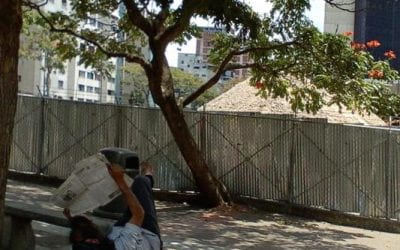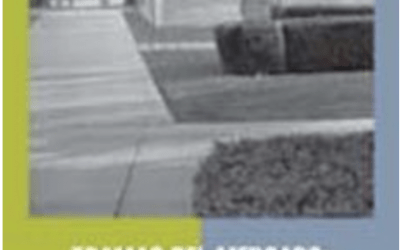Making a Difference: Taking on Tropical Diseases

Maxillaria superflua close up, by Gustavo Romero
Harvard School of Public Health (HSPH) students, along with their Brazilian counterparts, spent January studying and devising ways to control two tropical diseases endemic in Brazil: visceral leishmaniasis (VL) and schistosomiasis.
During two intensive weeks in Brazil, students explored the epidemiological, biological, and clinical characteristics of selected infectious diseases, as well as the social, cultural, economic, and environmental factors associated with their high prevalence and geographic distribution.. After classroom-based activities in São Paulo city, smaller groups went to do field work in either the city of Araçatuba in São Paulo State or the Jequitinhonha Valley, in Minas Gerais State. The Collaborative Course on Infectious Disease in Brazil was offered by HSPH and the Santa Casa de Misericórdia de São Paulo Medical School (Santa Casa) with the support of the Brazil Studies Program at DRCLAS. Faculty members and researchers from HSPH, Harvard Medical School, Santa Casa and other Brazilian academic and governmental institutions led and taught the course.
In the field of public health, we are concerned with not only the body, but with the body’s inextricable relationship with society, history, the economy and culture. Many of us perpetually confront the challenges of working cross-culturally with populations with whom we do not have a common past or environment. We face difficult questions of how we can understand ways of life different from our own and operate effectively as “outsiders.” Collaborating with local experts—the Brazilian students and faculty—and spending time in Brazil provided HSPH students with a unique opportunity to confront these challenges.
During the week in Araçatuba, my team, which chose to focus on social and behavioral aspects of VL, visited communities and had conversations with residents and employees of the Superintendence for the Control of Epidemics (SUCEN), the state of São Paulo’s agency for control of epidemics. We developed research questions to guide us in conducting preliminary research on the local context to serve as the basis for our final project assignmen, a proposal for a future full-fledged study. Working closely with Lucia Fonseca de Camargo-Neves, the director of the SUCEN leishmaniasis control program in Araçatuba, we became interested in finding out more about the link between socio-economic conditions and increased risk of VL. We wanted to learn about the public education program on VL, especially the program’s recommended prevention measures for individuals, such as keeping backyards free of organic matter (e.g. leaves, animal feces). What are the characteristics of the people taking preventive measures? Is there a relationship between whether or not people take preventive measures and their socio-economic status, as has been found in other studies on prevention of diseases such as malaria and cancer?
We visited three communities of varying socio-economic status. In each of the communities—Jardim Amizade, Jardim Umuarama, and Jardim Vista Verde—we asked residents the same basic set of questions about leishmaniasis in an informal, conversational manner. Renata, the Brazilian on my team, spoke with residents and translated, while Otibho and I responded with follow up questions and furiously took notes. On the first day, we accompanied a team of two workers from the Centro de Controle de Zoonoses as they went from house to house in Jardim Amizade, conducting a canine serological survey—a primary component of the SUCEN VL control program—to identify VL-infected dogs,. They knocked on doors of households known to keep dogs and collected blood spots from their ears for testing.
We also made two visits to Jardim Umuarama to interview residents and observe SUCEN workers conducting a capture of sandflies—the VL vector—in backyards of homes, from chicken coops and under trees. While shadowing a municipal environmental management team, my team interviewed residents of the third and poorest of the communities, Jardim Vista Verde. Some roads were unpaved with large areas on the periphery filled with wild vegetation and garbage.
On our last day in Araçatuba, we gave presentations of our final projects to one another and to the staff members from local collaborating institutions. The “vector control” team researched canine control in Araçatuba including current regulations, programs and methods for reducing dog and sandfly interaction. They proposed studies of prevention methods and made recommendations for improvement of current VL control strategies. The “treatment and diagnosis” team designed a prospective non-randomized, non-controlled trial to examine methods of treatment for VL among patients with HIV co-infection in Araçatuba. My team examined the socio-economic conditions of different communities in Araçatuba and proposed a population-based household survey to study linkages between these conditions and people’s use of VL prevention measures, as well as qualitative research to solicit input of community members in analyzing survey results and create a forum for community organization.
Back in São Paulo city, the Araçatuba and Jequitinhonha groups reunited to share and discuss their final projects. One Jequitinhonha team conducted a study using a survey and observations to describe residents’ water use (e.g. sources and purposes) and evaluate their knowledge of schistosomiasis. They proposed potential solutions such as creating a community laundry facility and sprinkler using treated water to provide a safe, attractive alternative to untreated water. The second team conducted qualitative research to evaluate the community’s understanding of schistosomiasis and related behaviors to inform future recommendations for schistosomiasis programs that would take community perspectives and the social context into account. Another team assessed potential problems of schistosomiasis treatment, examined treatment administration through data from patient interviews and made recommendations for local health policy.
The cross-national collaborative aspect of this course allowed HSPH students to transcend language barriers and—by directly linking us with Brazilians—mitigated our potentially alienating foreignness. All course participants were able to go beyond objective, academic study of our populations of interest and their contexts, and learn the experiences and thoughts of those most affected by these diseases and whom health research should benefit. Actively engaging with the environment and society around us was key to developing an understanding of particular local determinants of diseases and ideas for their control that the experts from local institutions with whom we worked validated as astute and potentially highly useful.
Amelia Rock is a masters student in the Global Health and Population department at HSPH. She is working on her thesis, a qualitative study of gender dynamics and contraceptive use within women’s intimate partner relationships in São Paulo, Brazil.
Related Articles
Editor’s Letter: Venezuela
Long, long ago before I ever saw the skyscrapers of Caracas, long before I ever fished for cachama in Barinas with Pedro and Aída, long before I ever dreamed of ReVista, let alone an issue on Venezuela, I heard a song.
Elections and Political Power: Challenges for the Opposition
English + Español
Next month’s elections will be an important benchmark in Venezuelan politics. On November 23, voters will go to the polls to elect 22 state governors and 355 mayors in as many municipalities, as well as choose the mayor of Caracas. The elections are taking place in a political environment influenced by the abrupt proclamation of 26 laws on July 31, the last day of President Chávez’s 18-month powers to issue emergency decrees …
A Review of Tramas del mercado: imaginación económica, cultura pública y literatura en el Chile de fines del siglo veinte
Luis Cárcamo-Huechante’s new book provides us with a convincing counter-narrative, at once nuanced and succinct, to three mainstream narratives of the neoliberal free market in Chile: those of monetarist economics, promotional politics, and literary bestsellers. It covers the Pinochet dictatorship (1973-90) and the transition to democracy from its official inauguration in 1988, with the victory of the Yes vote for a return in two years’…




